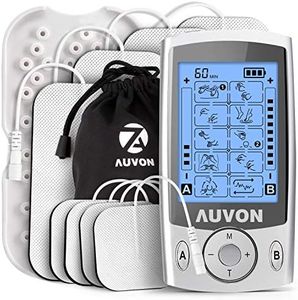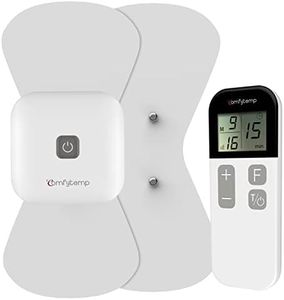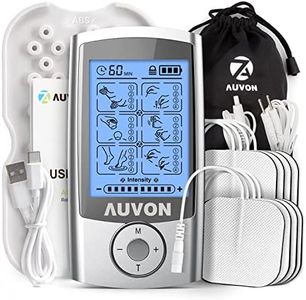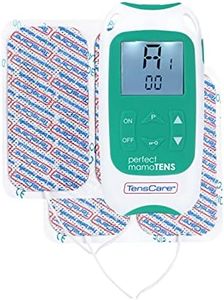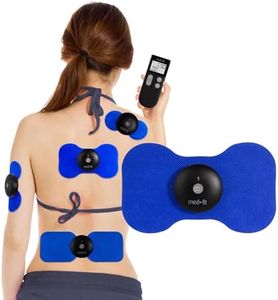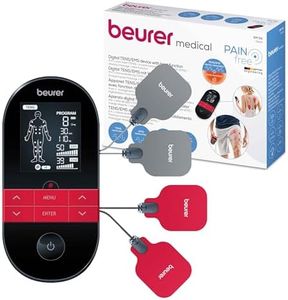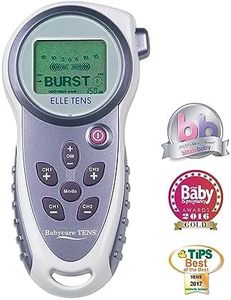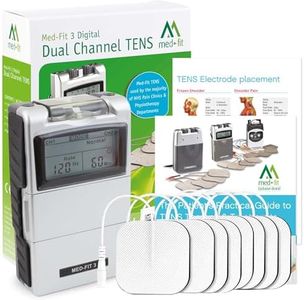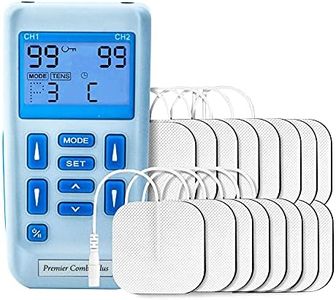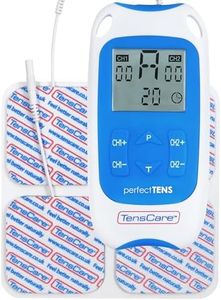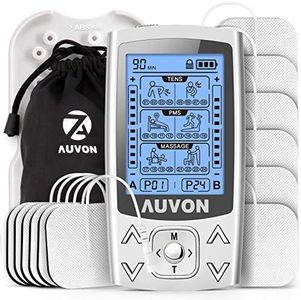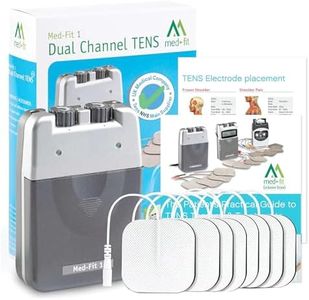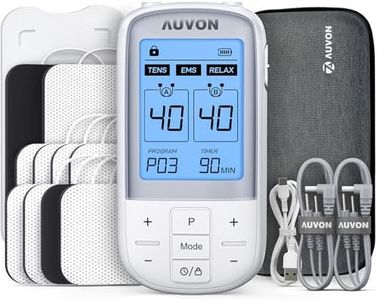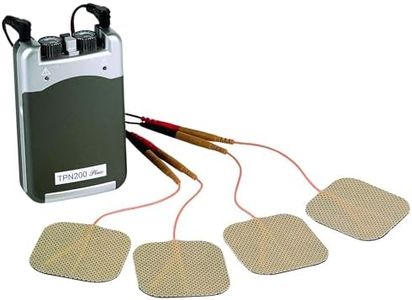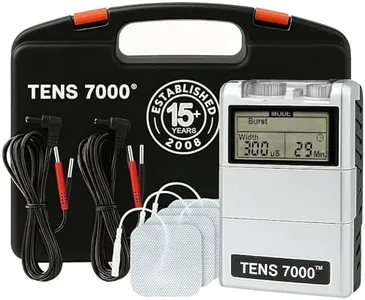We Use CookiesWe use cookies to enhance the security, performance,
functionality and for analytical and promotional activities. By continuing to browse this site you
are agreeing to our privacy policy
10 Best Tens Units
From leading brands and best sellers available on the web.Recommended lists
Buying Guide for the Best Tens Units
TENS units, or Transcutaneous Electrical Nerve Stimulation units, are devices used for pain relief by sending electrical impulses through the skin to stimulate nerves. When choosing a TENS unit, it's important to consider your specific needs, such as the type and location of pain, as well as the features that will best help you manage it. Understanding the key specifications will help you select a unit that is effective and comfortable for your use.Intensity LevelsIntensity levels refer to the strength of the electrical impulses delivered by the TENS unit. This is important because different levels of pain and sensitivity require different intensities for effective relief. TENS units typically offer a range of intensity levels, from low to high. If you have mild pain or are sensitive to electrical stimulation, you might prefer a unit with lower intensity options. For more severe pain, a unit with higher intensity levels may be necessary. Consider your pain threshold and the severity of your condition when choosing the intensity range.
Modes and ProgramsModes and programs refer to the different types of electrical stimulation patterns available in a TENS unit. These can include settings like massage, acupuncture, or kneading, each designed to target different types of pain or provide different sensations. Having multiple modes allows you to customize your treatment to better suit your needs. If you have specific preferences or types of pain, look for a unit with a variety of modes that can address those needs. Experimenting with different programs can help you find the most effective relief.
Number of ChannelsThe number of channels in a TENS unit indicates how many areas of the body can be treated simultaneously. Each channel typically corresponds to a pair of electrode pads. This is important if you need to treat multiple areas at once, such as both your back and shoulder. Units with more channels allow for more comprehensive treatment. If you have widespread pain or multiple areas that need attention, consider a unit with more channels. For localized pain, a single or dual-channel unit may suffice.
Battery LifeBattery life refers to how long the TENS unit can operate before needing a recharge or battery replacement. This is crucial for convenience and uninterrupted treatment, especially if you plan to use the unit frequently or for extended periods. Units with longer battery life are ideal for those who need consistent pain management throughout the day. Consider your usage habits; if you need the unit for long sessions or travel, opt for one with a robust battery life.
Size and PortabilitySize and portability refer to the physical dimensions and ease of transport of the TENS unit. This is important for users who need to use the device on the go or prefer a discreet option. Smaller, lightweight units are easier to carry and use outside the home. If you plan to use your TENS unit while traveling or at work, look for a compact and portable design. For home use, size may be less of a concern, allowing you to focus more on other features.
